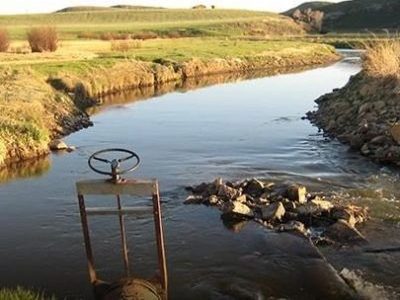Augmentation & Replacement Plans
The General Assembly has provided for augmentation, substitute supply, and water management replacement plans. These are measures designed to protect senior water rights while allowing junior water rights to divert water out of priority and avoid State Engineer shutdown orders.
Augmentation & Replacement Plans
In over-appropriated areas, applicants are generally unable to obtain a well permit for tributary groundwater or make a surface diversion without a replacement water plan. Such measures are required for diversion of water at times when there is no unappropriated water available in all watersheds that are over-appropriated during at least part of the year.
In an over-appropriated basin, junior water rights are curtailed unless they operate in priority or replace the depletions they make when they are not in priority. Injury occurs if the out-of-priority diversion intercepts water that would otherwise be available under natural conditions to the senior right at the time and place of its need.
Replacement water must meet the needs of senior water rights holders at the time, place, quantity and suitable quality they would enjoy absent the out-of-priority diversions. This allows a junior water user, for example, to pump a tributary groundwater well even when a river call exists on the stream. In the Rio Grande Basin, the General Assembly has provided for groundwater management plans of the Rio Grande Water Conservation District to serve as an alternative way to protect senior surface rights from injury by tributary groundwater pumping.
Replacement water may come from any legally available source and be provided by a variety of means. A replacement plan identifies the structures, diversions, beneficial uses, timing and amount of stream depletions to be replaced, along with how and when the replacement water will be supplied and how the plan will be operated. Some plans use storage water to replace depletions. Others include the use of unlined irrigation ditches and ponds during the non-growing season to recharge the groundwater aquifers that feed the river. In this way, they generate credits to replace depletions to streams that supply senior water rights, protecting against injury caused by out-of-priority groundwater pumping.
A person who wants to divert out of priority by implementing an augmentation plan must file an application with the regional water court. Under certain circumstances, the State Engineer may approve temporary changes of water rights and plans to replace out-of-priority depletions using substitute water supply plans. This allows water deliveries to continue while water court applications for changes of water rights or augmentation plans are pending. A substitute water supply plan approved by the State Engineer requires adequate replacement water to cover depletions of water that would injure senior water rights. Upon request by a party claiming to be injured, a water court reviews approval of a temporary change of water right or substitute supply plan.
Substitute Water Supply Plans
Substitute water supply plans allow temporary out-of-priority diversions if sufficient replacement water can be provided to senior rights to cover depletions. Substitute water supply plans are approved by the State Engineer for defined periods. In contrast, augmentation plans, which are long-term, must be approved by the water courts.
The Colorado General Assembly adopted legislation allowing the State Engineer to approve substitute water supply plans under certain circumstances while augmentation plan applications are pending in water court. A specific provision of this legislation requires that notice of the substitute water supply plan be provided to all interested parties so they can submit comments to the State Engineer’s Office.
After a substitute water supply plan has been reviewed, the State Engineer will require terms and conditions to assure that operation of the plan will replace all out-of-priority depletions in time, location and amount to prevent injury to other water rights. The Colorado General Assembly has also given the State Engineer authority to approve interruptible water supply agreements, emergency water supply plans and short-term water uses, including temporary loans of water to the Colorado Water Conservation Board for instream flow use.




